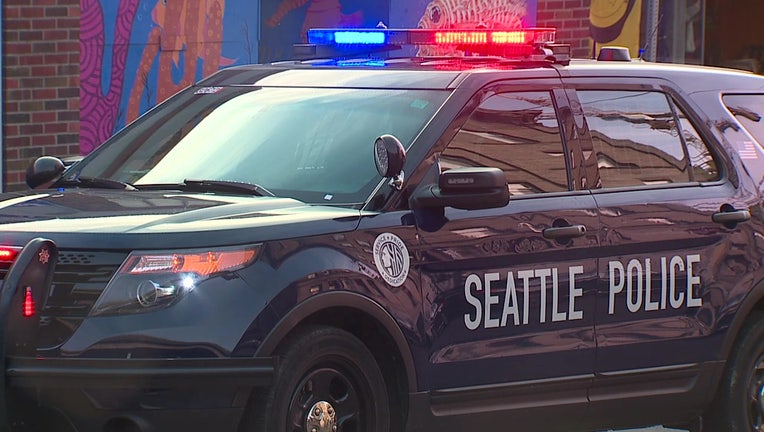Audit finds Seattle Police disciplinary system is 'falling short,' 'not transparent'

(File/FOX 13 News photo)
SEATTLE - A report by the city's Inspector General finds the Seattle Police Department's disciplinary system is "falling short" and is "not transparent."
The Office of the Inspector General (OIG) began an audit of the police department in Dec. 2020, and on Tuesday presented their findings to the City Council during a bi-monthly public safety committee meeting.
According to the report, Seattle Police practices—with provisions from the Police Officers Guild (SPOG) and Police Management Association (SPMA)—create gaps in the disciplinary system.
The OIG pointed to processes in how disciplinary actions are decided and recorded, and how those updates are relayed to people who filed complaints in the first place. Additionally, police chiefs have demonstrably chosen lower levels of officer punishment when presented with information from the Discipline Committee, especially when a range of discipline included termination. OIG notes that employees are entitled to a Loudermill hearing with the police chief, allowing them to give their side of the story before a disciplinary action is made, but complainants do not have an equivalent opportunity to do the same.
Overall, the Inspector General says these gaps affect the "timeliness, fairness, consistency, and transparency of discipline" of officers, as well as the fairness and transparency for people impacted by police misconduct.
Specifically, the OIG noted the following discrepancies:
- Proposal and Determination of Discipline: Process for determining discipline is "generally consistent and timely," but improvements to transparency and fairness for complainants is needed.
- Accountability for Minor Violations: The department's use of the "Not Sustained – Training Referral" designation with recordkeeping restrictions, made in SPOG and SPMA's collective bargaining agreements, creates a gap in accountability for minor violations.
- Enforcement of Discipline: Suspensions "are not consistently served in a timely manner, and in some cases mitigate the financial impact of discipline.
- Disciplinary Records: Several disciplinary actions were not documented, impacting public records requests and employment checks.
- Communicating Case Resolution to Complainants: Some complainants did not receive updates on cases, attributed to Office of Police Accountability processes.
- Arbitration and Alternatives: A 2017 police accountability ordinance envisioned the Public Safety Civil Service Commission as the "sole route of appeal," providing a different standard of review from SPOG arbitration. The OIG audit found this is not the case, and the commission lacks the capacity to be the sole route of appeal.
- SPOG Arbitrator Selection: "Weak controls" of arbitrator selection mean that SPOG grievances have largely not been settled.
OIG says more work is needed to look at the impacts of appeals, once the backlog of cases is cleared. Audit findings may also warrant follow-up reviews on things outside the scope of the report, such as rapid adjudication of OPA cases, SPD compliance with SB 5051, supervisor actions, discipline for Equal Employment Opportunity cases, and communication in Not-Sustained cases.
RELATED: Seattle Community Police Commission releases statement on SPD's Proud Boy ruse during 2020 protests
Get breaking news alerts in the FREE FOX 13 Seattle app. Download for Apple iOS or Android. And sign up for BREAKING NEWS emails delivered straight to your inbox.
Stay connected with FOX 13 News on all platforms:
DOWNLOAD: FOX 13 News and Weather Apps
WATCH: FOX 13 News Live
SUBSCRIBE: FOX 13 on YouTube
DAILY BRIEF: Sign Up For Our Newsletter
FOLLOW: Facebook | Twitter | Instagram
Watch FOX 13 Seattle for the latest news:

